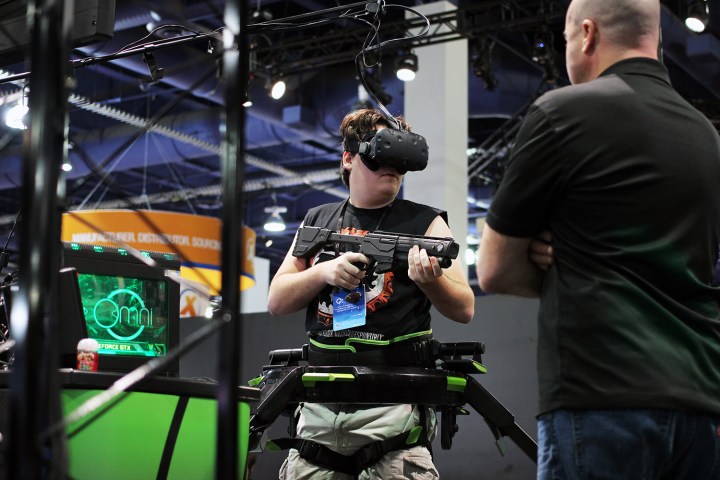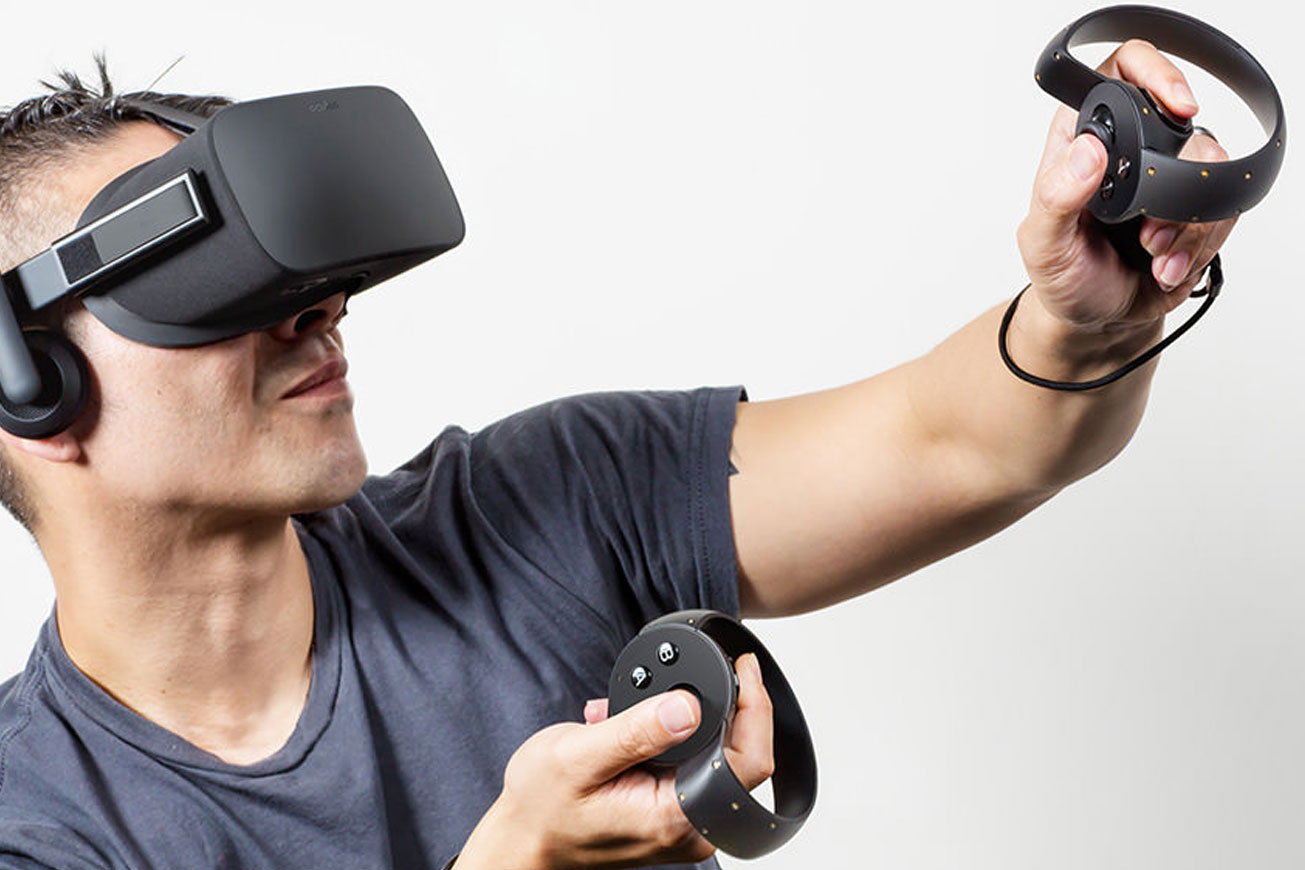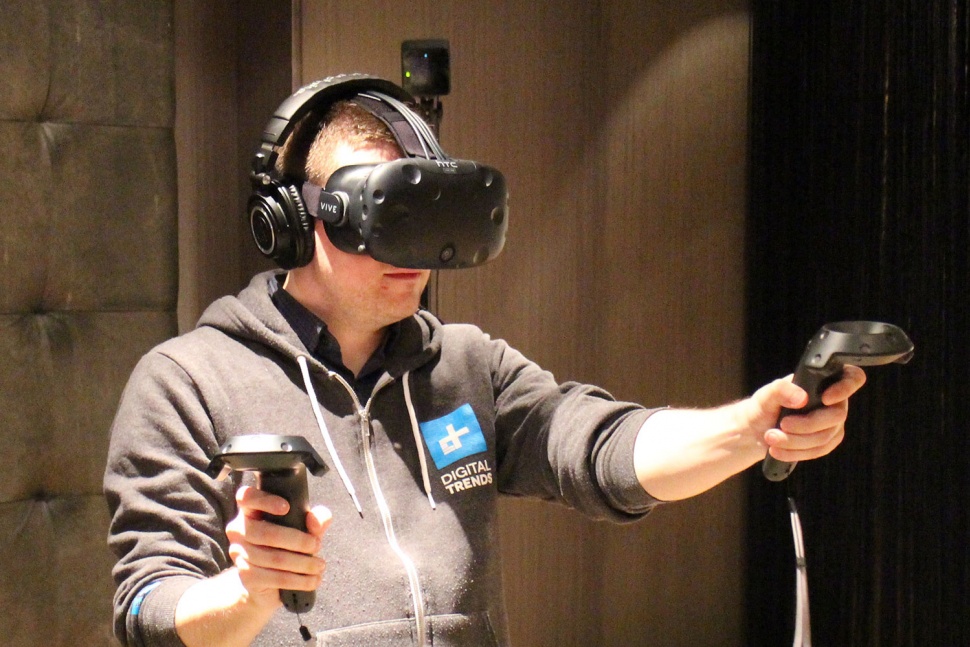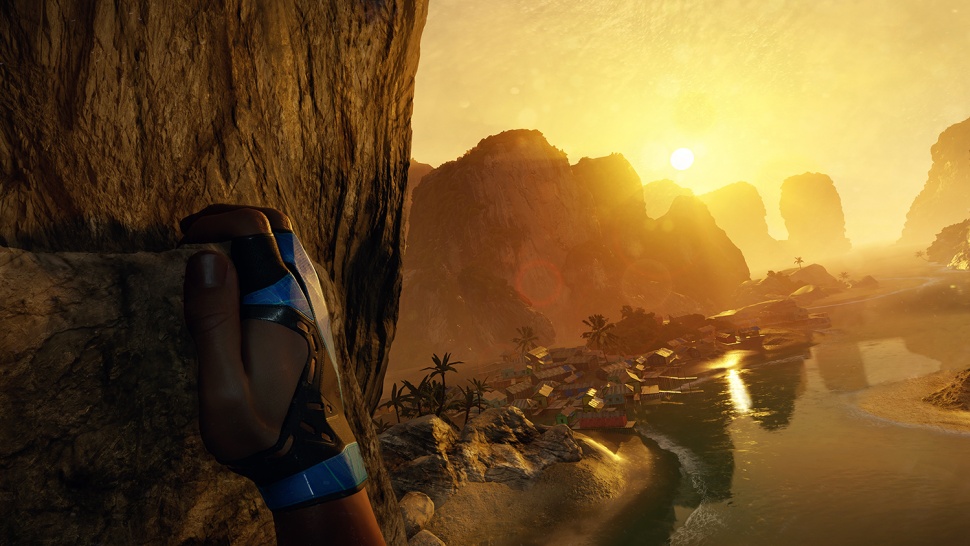
Many fans are highly concerned about games, apps, and experiences that are locked to a particular headset. Game console companies have used this lockdown strategy in the past to promote their systems, and many fear it will be used to promote virtual reality hardware, too. This strategy has led to a situation where you must own three separate game consoles to play the most popular titles.
With VR, worry has reached a new level. Because VR sets will be many times more expensive than consoles — priced as high as $800 plus the cost of a PC — most players will have to choose one VR headset to buy. But no one wants to miss out on good games or apps. Unfortunately, clarification on the topic hasn’t been easy to come by. Most game developers remain tight lipped, which has led many fans to assume the worst.
What exactly is going on with VR exclusives, and just how open are the Vive and Oculus Rift? We asked executives from Oculus, HTC, and Valve to help clarify.
Exclusivity — an outdated concept
Exclusivity makes sense from a business perspective. Usually, a contract is formed between the hardware company and a developer. The former gains content that can only be played on its platform, while the latter is usually compensated with the promise of promotion, better per-sale margins, or a big, fat check. Both companies gain — as long as the resulting game isn’t a disaster.
But gamers don’t gain. They lose. They’re forced to choose hardware not because they want it, but because they must buy it to access the games they want to play. VR’s high price of entry makes the situation far worse than it is with consoles. The Oculus Rift and HTC Vive cost roughly double the price of a PlayStation 4. Hardcore gamers might be able to justify two $350 consoles — but two $600 to $800 headsets? Few can afford that. And that’s if you already own a high-end PC capable of running these VR systems. If not, that’s another $1,000+ expense.
Talk of exclusivity has become particularly painful because, in today’s world of openness and cross-platform tech, there’s often no technical reason why a title must be exclusive. In the 1980s and 1990s, when exclusivity was at its peek, porting content between platforms was hard. Sometimes, it was impossible. That’s not true today. Exclusivity is (almost always) entirely about business, and has nothing to do with what’s good for customers, or what’s technically possible.
So when hints of VR exclusives began to emerge, fans became worried. Oculus tried to explain by saying that while certain titles would be exclusives on its store, those titles wouldn’t be exclusive to its hardware, but what in the world does that mean? What other hardware might access the store? Was Oculus referring only to the Samsung Gear VR, which it developed in partnership with Samsung, or does it intend to throw open the Oculus Store to everyone?
Worse yet, might Valve and HTC follow suit and lock down the SteamVR platform, turning virtual reality into a race that only one horse could win?
Gabe Newell responds
We reached out to Valve for its take on the situation and received a quick response. The company’s VP of Marketing, Doug Lombardi, replied with a statement from Valve CEO, founder and PC gaming figurehead, Gabe Newell.

“If I have a Vive, can I buy software on non-Steam stores? Yes. The Vive is not tied to the Steam store. If I have a non-Vive HMD, can I buy software on Steam? Yes. Steam is not tied to the Vive HMD,” according to Newell.
He went on to explain his thoughts on exclusivity, and just why Valve won’t tie any developers to Steam, or the Vive headset.
“We think exclusivity is a bad idea for customers, for developers, and for the long term,” said Newell. “Developers can ship their VR apps on Steam regardless of whether or not they support Vive. We think customers should buy their VR apps on whatever store they prefer.”
That’s encouraging for anyone who was concerned about Valve’s stance on gaming exclusivity.
Recent comments made by Oculus’ founder, Palmer Luckey, had led some people to think that Valve was the reason the Vive wasn’t currently compatible with the Oculus Store.
When pressed about why the store was only supporting the Oculus Rift and Samsung Gear VR at this time, Luckey said in a Reddit thread that “we can only extend our SDK to work with other headsets if the manufacturer allows us to do so. It does not take very much imagination to come up with reasons why they might not be able or interested.”

That certainly sounds like someone other than Oculus is causing the bottleneck. The idea that Valve would lock down Steam makes sense. After all, it makes most of its revenue from taking small cuts of every bit of software sold on Steam. Keeping as many sales there as possible is good for business.
But Valve denies that it’s putting up a roadblock. Doug Lombardi clarified Valve’s stance on getting the Vive working with the Oculus Store, suggesting that the ball was very much in Oculus’ court.
“Anything Oculus or other stores need to work with the Vive are documented in the freely available OpenVR APIs,” he told Digital Trends.
Indeed, Valve seems to be going out of its way to make sure as much content works as possible. The company has even announced a “Desktop Theater Mode” that will make any game playable with SteamVR (and thus the Vive), even if it wasn’t coded for VR originally.
HTC hates exclusivity, too
But if Valve isn’t throwing a spanner in the works, who is? Perhaps the actual manufacturer of the headset, HTC is behind it. To find out whether that was the case, our next port of call was speaking with a representative from that company — Vice President of Business Planning and Management for Virtual Reality, Daniel Ó Brien.
The gaming industry is littered with the graves of companies of exclusives.
When asked on his thoughts on platform exclusives, he was very clear: “The gaming industry and the gaming world is littered with the graves of companies of exclusives. Right now in these early days, we don’t want to do that. VR should be very open.”
The Vive will have some de-facto exclusive experiences, but only because it is the only headset that can deliver a full room-scale experience thanks to its tracking solution and motion controls. Games that take full advantage of these features won’t work well with the Rift, though there’s nothing to keep developers from trying to re-tool their control scheme for use with a gamepad.
“We’ve said from day one, we’re not doing exclusives,” he reiterated. “The best thing we can do for the industry, is to let developers be healthy and be on multiple platforms.”

O’ Brien did say that like Oculus, HTC is also funding some developers. While Ó Brien wouldn’t tell us which ones, or how much of the budget HTC had contributed, he did say that none of them were forced to sign exclusivity contracts.
To confirm this, we reached out to a few developers who have built their games with the Vive in mind from day one. Stress Level Zero, the maker of Hover Junkers, told us that it started development after the Vive was first showcased, and that it got a hold of a Vive devkit early on by contacting HTC and Valve directly and petitioning them for it.
But there was never even a hint that the game would be tied to any exclusive contract.
Oculus exclusives
We don’t know for sure if Oculus has pushed those sorts of contracts on developers because none of the developers working on exclusives responded to our requests for comment. Nevertheless, we do know Oculus has helped fund development of a number of games and experiences. Games like Dreadhalls purportedly wouldn’t have even been made without Oculus funding, so it’s perhaps understandable why the idea of exclusivity reared its head at the Facebook-owned company.
But Valve and HTC have taken a firm stance that exclusives only harm the ecosystem, gamers and developers, so it’s surprising to see Oculus going a different route.
Don’t expect the Rift store to come to Vive soon
Openness from either side doesn’t mean we’ll see the Oculus storefront on the Vive soon. While VR fans have argued about why the Vive isn’t compatible with the Oculus Store, it’s not something that’s a priority for the people working at HTC.
When I broached the subject with Ó Brien, he seemed perplexed and said that even though there was a lot of back and forth chat between the teams at Oculus and HTC, nobody had even discussed getting the Vive to work on the Oculus Store.
We still don’t know exactly what Oculus “exclusive” means, and we don’t know if it’s temporary or not.
“That’s never come up between the companies,” he said. He seemd surprised we thought to bring it up.
We followed up by asking if he had any objections to the idea. He said that really it hadn’t been discussed, but that if that conversation were to happen, it could probably be made to work.
In contrast, he said that a lot of effort had gone into making other platforms easy to convert from, to the Vive. He spoke of easy porting using engines like Unity and Unreal, and said that with some of the tools that Valve had been developing, it was now possible to “port your game from another platform, to the Vive, in about a day.”
Oculus is at a closed disadvantage
What is Oculus’ official stance on all this? Games like Dreadhalls, like The Climb, like Defense Grid 2 will release “exclusively” on the Oculus Store. Only Oculus and Samsung hardware will be compatible on launch day.
Although, we did speak with an Oculus representative, the company refused to provide additional comment. Unfortunately, that leaves us without a definitive answer to this whole confusion about why one of the big three players in the VR game is talking exclusives. We still don’t know exactly what Oculus “exclusive” means, and we don’t know if it’s temporary, or not.
This puts Oculus at a disadvantage. We know any content made compatible with the Vive will not be tied to it, and any content released on SteamVR will not be restricted to that digital platform. Games may need to be retooled by developers to work with other VR headset and VR storefronts, but they will not be contractually bound to the Vive.
We can’t claim that Oculus wants the opposite, but we do know that certain experiences and games will only be available through its platform.
Why? We don’t know. It could be to ensure a mandatory minimum level of VR comfort and fidelity; it could be that Facebook is leaning over it with its own influences and ideas; but most likely it has to do with money. We just don’t know, and Oculus doesn’t want to clarify at this point.
We’ll have to wait and see, but one thing is clear: if an exclusivity war does start, it will be Oculus that fired the first shot. So far, it’s looking like you may need to buy both systems to get a complete VR experience.
Update 3/14/2016: An earlier version of this article stated Steam does not work on the Oculus Rift. That is not correct. The article has been updated to reflect that.










